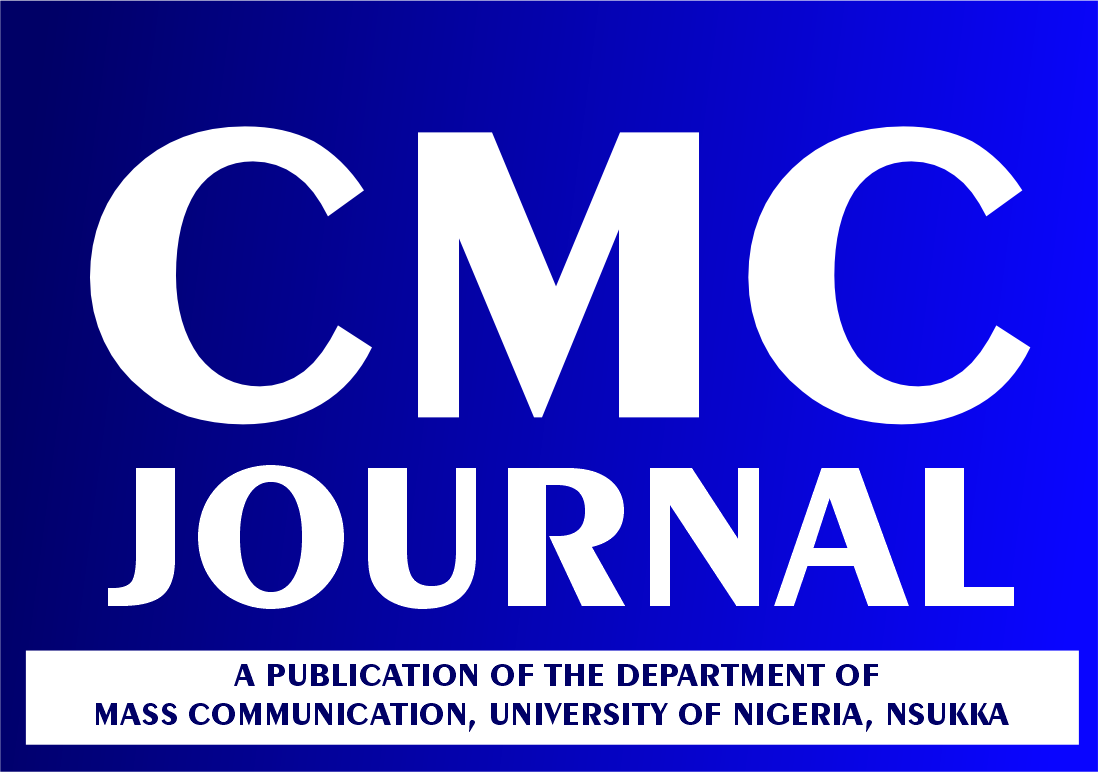ADOPTION OF ARTIFICIAL INTELLIGENCE IN DOCTOR-PATIENT COMMUNICATION
Author(s) Name:
Ms. Theresa Otung Department of Mass Communication, University of Nigeria Nsukka, Enugu State. Email: otungtheresa@gmail.com
Year of Publication:
2024
Volume:
Vol. 1. August, 2024

Abstract
Artificial intelligence (AI) one of the most revolutionary technological advancements to emerge in recent times is remodeling and shaping the world. As the healthcare sector evolves, the integration of AI in Doctor-patient communication becomes increasingly prevalent. Doctor-patient communication encompasses verbal and non-verbal interactions aimed at creating a good interpersonal relationship, facilitating exchange of information and including patients in decision making for their overall health care.
The adoption of artificial intelligence (AI) in healthcare, particularly in the communication between doctors and patients, represents a transformative shift in the health sector. This paper which is theoretical, evaluates the utilization of AI in doctors/patient communication using the theoretical framework of Technology acceptance model. This theory, explores users’ acceptance and adoption of technology. It posits that perceived usefulness (PU) and perceived ease of use (PEOU) are key determinants of an individual’s intention to use and actual usage of a technology. This evaluation examines doctor-patient communication, approaches to doctor-patient communication with a focus on Paternalism and patient-centredness, the various applications of AI in doctors/patient communication, such as virtual health assistants, chatbots, and telemedicine platforms for teleconsultation, accessing information, scheduling of appointments etc. overall treatment and patient management.
It scrutinizes the extent to which these technologies meet the diverse needs of users, taking into account factors like accessibility, usability, and reliability. For patients, the convenience of timely medical information, appointment scheduling, and personalized health advice constitutes a significant satisfaction. Meanwhile, doctors benefit from streamlined administrative tasks, improved diagnostic support, and enhanced patient engagement.
The adoption of artificial intelligence (AI) in healthcare, particularly in the communication between doctors and patients, represents a transformative shift in the health sector. This paper which is theoretical, evaluates the utilization of AI in doctors/patient communication using the theoretical framework of Technology acceptance model. This theory, explores users’ acceptance and adoption of technology. It posits that perceived usefulness (PU) and perceived ease of use (PEOU) are key determinants of an individual’s intention to use and actual usage of a technology. This evaluation examines doctor-patient communication, approaches to doctor-patient communication with a focus on Paternalism and patient-centredness, the various applications of AI in doctors/patient communication, such as virtual health assistants, chatbots, and telemedicine platforms for teleconsultation, accessing information, scheduling of appointments etc. overall treatment and patient management.
It scrutinizes the extent to which these technologies meet the diverse needs of users, taking into account factors like accessibility, usability, and reliability. For patients, the convenience of timely medical information, appointment scheduling, and personalized health advice constitutes a significant satisfaction. Meanwhile, doctors benefit from streamlined administrative tasks, improved diagnostic support, and enhanced patient engagement.
Editorial Team
Editor-in-Chief
Prof. Michael O. Ukonu
Deputy Editor-in-Chief
Dr Blessing Chinweobo-Onuoha
Associate Editors
Prof. L.I. Anorue
Prof. J. Wogu
Prof. G. Ezeah
Prof. C.C. Okpoko
Review
Dr Chidiebere Nwachukwu
Dr Ozioma Nwokedi
Dr Victor Nwogbo
Dr Belinda Anyakoha
Dr Uchenna Eze
Dr Ike Ugbor
Secretary
Dr Stephen Ogbodoh
Design Editor
Dr Ike Elike
Business Manager
Dr Martin Ezugwu
Editorial Consultants
Prof. Nnanyelugo Okoro, Department of Mass Communication, University of Nigeria, Nsukka, Enugu State
Professor Sunny Udezeh, Department of Mass Communication, Enugu State University of Science and Technology, Enugu, Enugu State
Professor Ezekiel Asemah, Vice Chancellor’s Office, Glorious Vision University, Benin, Edo State
Professor Jude Terna Kur, Department of Information Science and Media Studies, Federal University of Technology, Minna, Niger State
Prof. Rotimi Williams Olatunji, School of Communications, Lagos State University, Ojo, Lagos State
Prof Walter IhejirikaDr. Chukwujekwu Charles Onwuka Department of Sociology, Chukwuemeka Odumegwu Ojukwu University, Igbariam Campus. Email: cc.onwuka@coou.edu.ng
WhatsApp no: 08064396459
